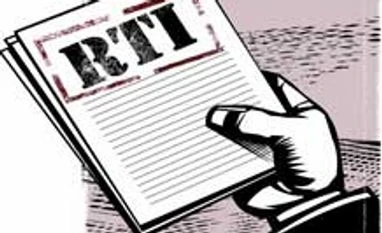the RTI Act can now be used to access an information even if it is available through any other route, the Delhi High Court ruled on Monday.
The court, in a landmark order which is likely to impact a number of RTI cases of similar nature, allowed a petition seeking disclosure of communication between Urban Development Ministry officials with those of CBI--an exempted organisation--in a corruption case.
In a recent order, Justice Vibhu Bakhru also said that section 8(1)(h) of the Act--which allows an organisation to withhold such information that impedes the process of investigation, apprehension and prosecution--cannot be imposed without giving proper reasons to justify the denial.
Justice Bakhru said neither the first appellate authority nor the Central Information Commission considered how the information sought for would impede the process of probe, apprehension or prosecution of the petitioner, an accused.
He rejected the Ministry's argument that during trial, the material relied upon by the prosecution would be provided to the applicant, thereby no prejudice would be caused to him.
"In my view this cannot be a ground to deny information to the petitioner. First of all, the question whether the information sought by the petitioner is relevant or necessary, is not relevant or germane in the context of the Act; a citizen has a right to information by virtue of Section 3 of the Act and the same is not condition on the information being relevant," he said.
He said the fact that the petitioner has access to the material relied upon by the prosecution does not prevent him from seeking information, which he considers necessary for his defence.
The court, in a landmark order which is likely to impact a number of RTI cases of similar nature, allowed a petition seeking disclosure of communication between Urban Development Ministry officials with those of CBI--an exempted organisation--in a corruption case.
In a recent order, Justice Vibhu Bakhru also said that section 8(1)(h) of the Act--which allows an organisation to withhold such information that impedes the process of investigation, apprehension and prosecution--cannot be imposed without giving proper reasons to justify the denial.
Also Read
Allowing the petition seeking disclosure of communication between the Ministry and CBI, he dismissed the order given by Information Commissioner M A Khan Yusufi who had agreed with the Ministry to deny information on the grounds that its disclosure would impede the process of prosecution.
Justice Bakhru said neither the first appellate authority nor the Central Information Commission considered how the information sought for would impede the process of probe, apprehension or prosecution of the petitioner, an accused.
He rejected the Ministry's argument that during trial, the material relied upon by the prosecution would be provided to the applicant, thereby no prejudice would be caused to him.
"In my view this cannot be a ground to deny information to the petitioner. First of all, the question whether the information sought by the petitioner is relevant or necessary, is not relevant or germane in the context of the Act; a citizen has a right to information by virtue of Section 3 of the Act and the same is not condition on the information being relevant," he said.
He said the fact that the petitioner has access to the material relied upon by the prosecution does not prevent him from seeking information, which he considers necessary for his defence.
)